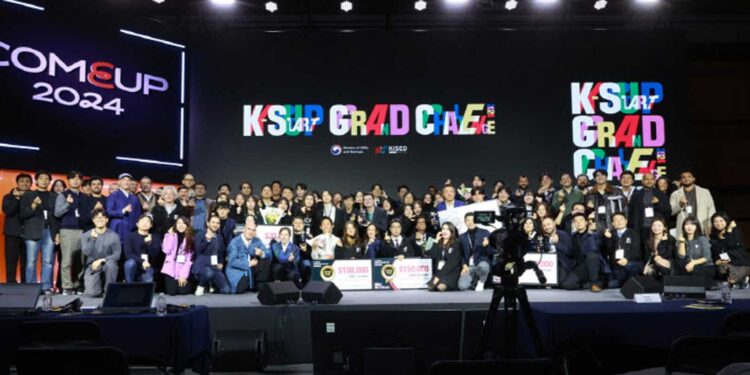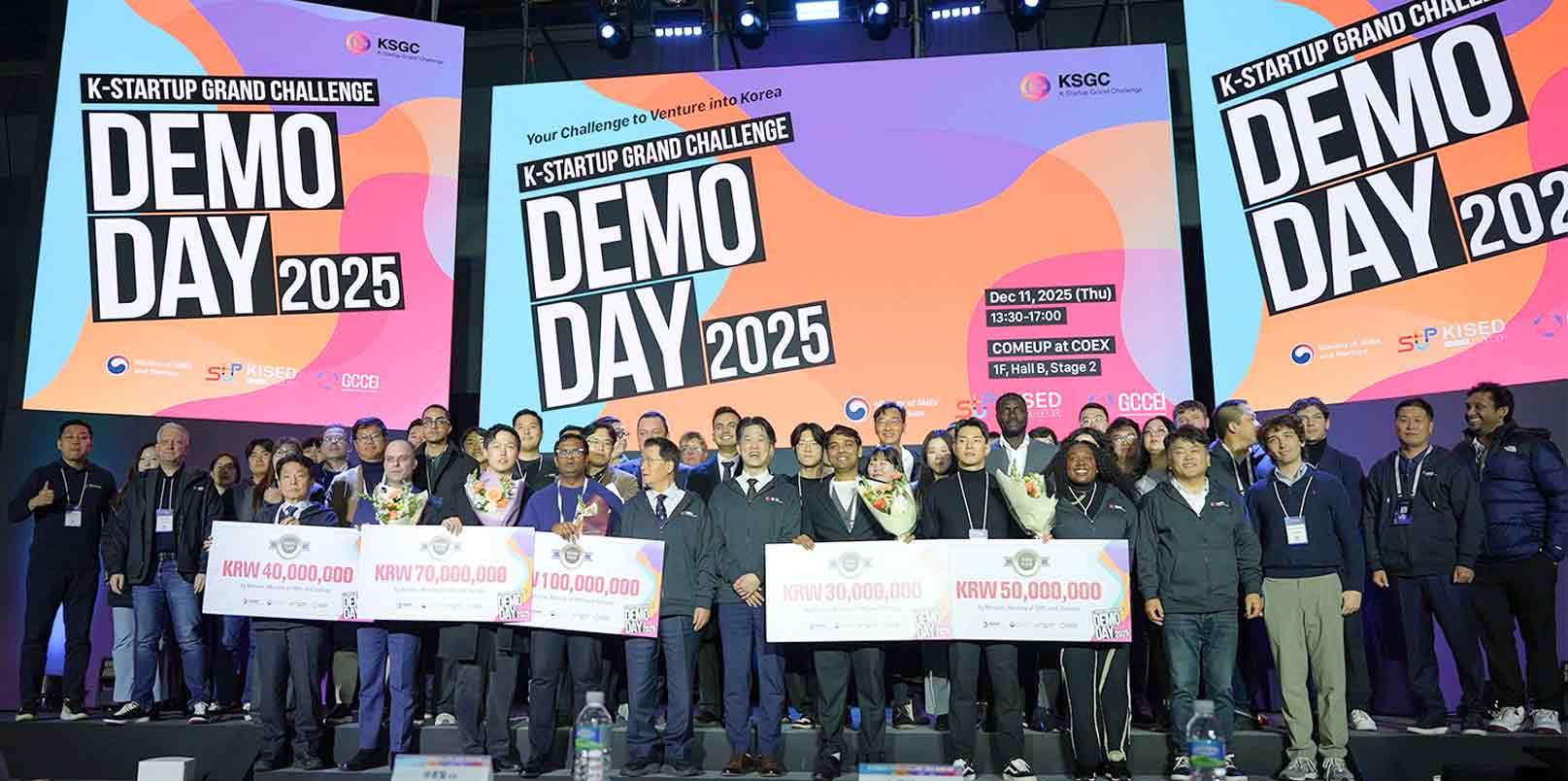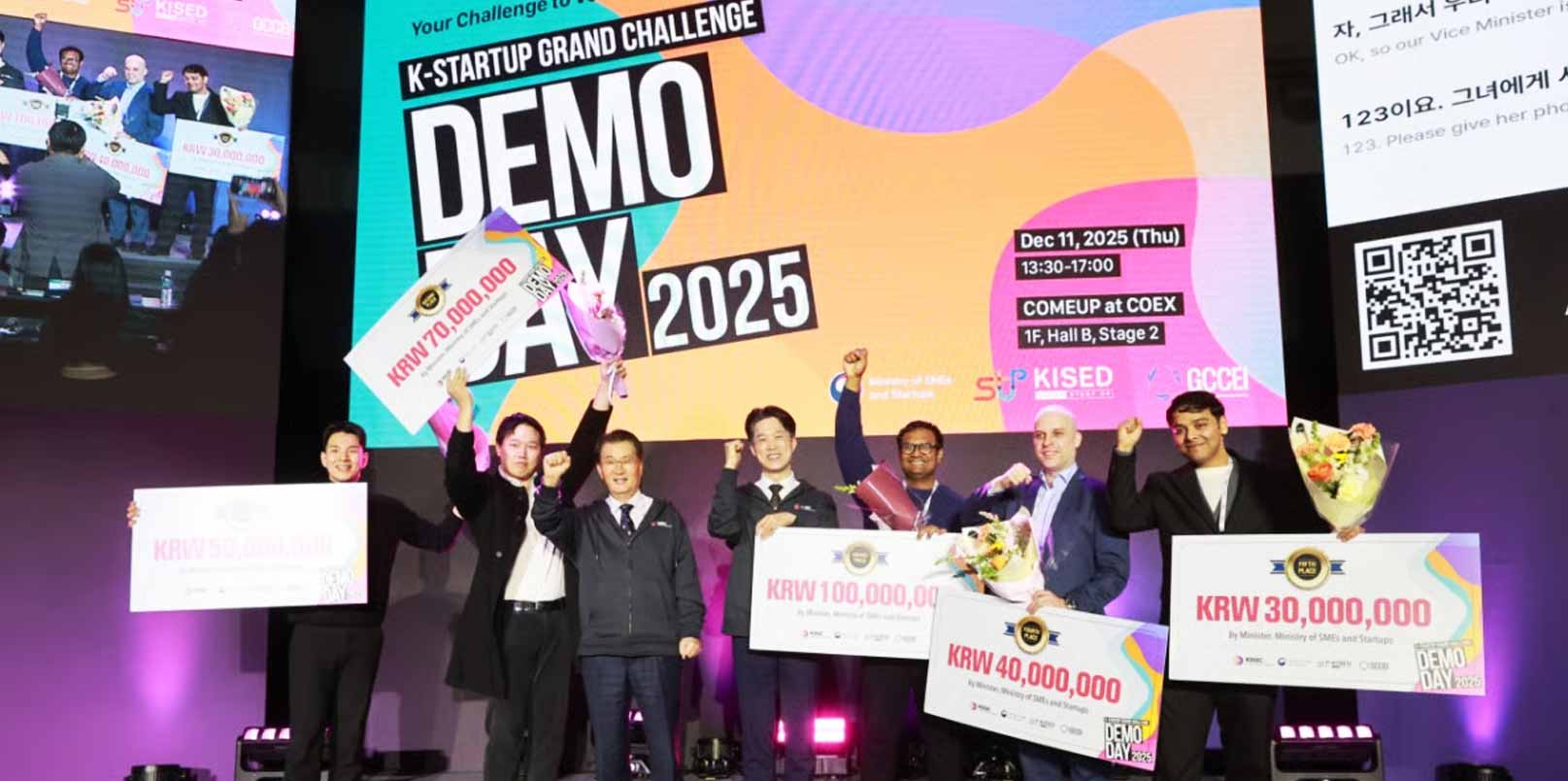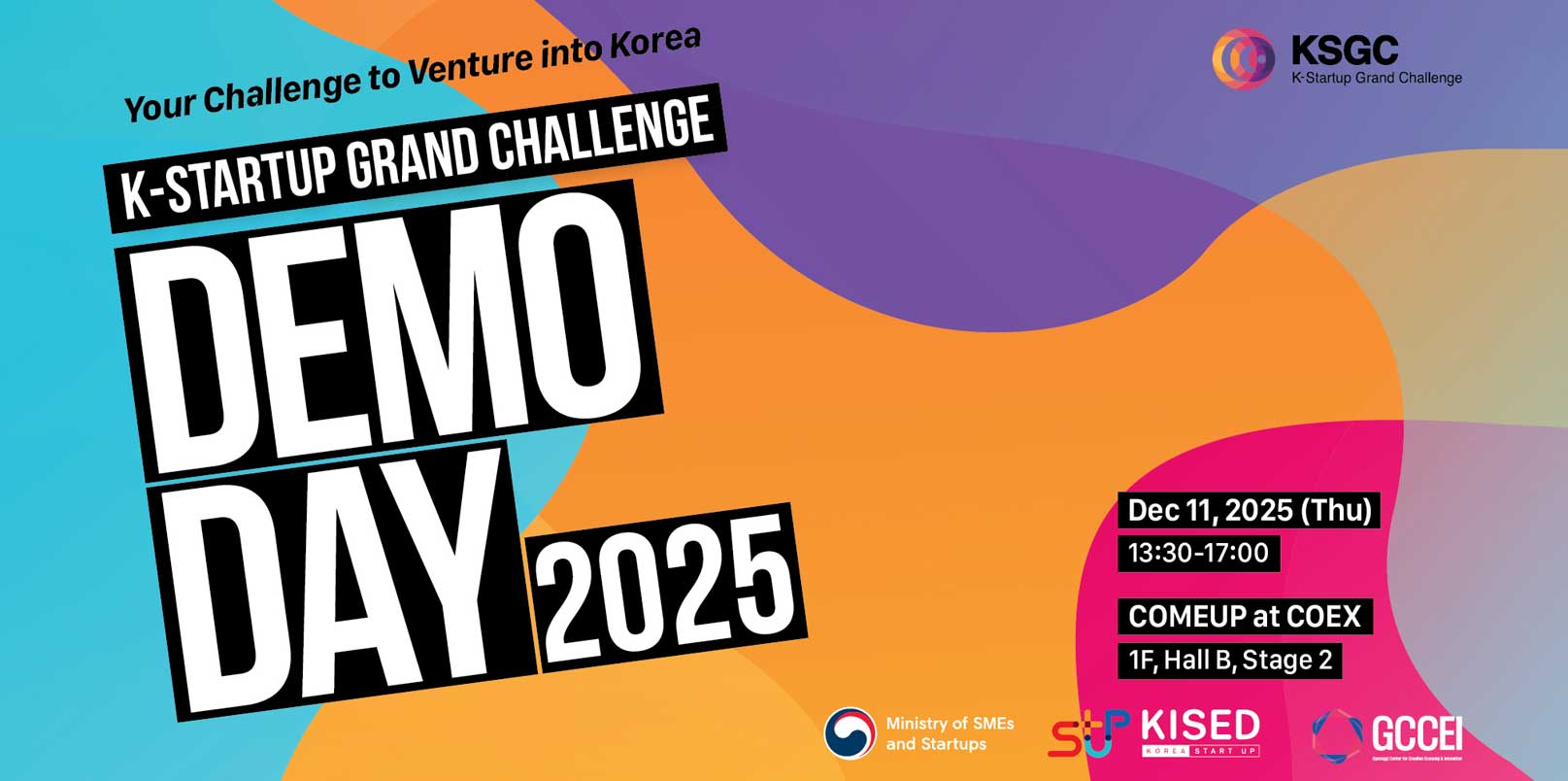South Korea is taking another step to attract high-potential global founders by adjusting visa policies tied to its flagship K-Startup Grand Challenge in 2025. This year, the government has expanded the startup visa quota for winning foreign teams from two to three founders — a change designed to address on-the-ground feedback from entrepreneurs and strengthen the country’s position as a launchpad for global innovation.
K-Startup Grand Challenge Visa Policy Changes 2025
The Ministry of SMEs and Startups (MSS) will now recommend up to three startup-related visas (D-10-2 or D-8-4) per company for foreign teams that place in the Top 20 of the K-Startup Grand Challenge (KSGC) — Korea’s largest global startup competition.
Previously, foreign teams could register only two co-founders for competition participation, and visa recommendations reflected that cap.
While the participation limit remains at two, the revised quota allows an additional co-founder to remain in Korea, enabling leadership teams to stay together and build their businesses beyond the competition period.
Leveraging the Startup Korea Special Visa
The new quota is implemented through the Startup Korea Special Visa system, introduced by the MSS in November 2024. This framework already allows up to three visa recommendations per company, and the KSGC allocation is now aligned with that standard.
Once the MSS recommends a D-8-4 Startup Visa based on Grand Challenge performance, the Ministry of Justice conducts a formal review under immigration regulations before issuing the visa.
Government’s Commitment to Reducing Barriers
The policy change follows direct feedback from the startup community. On August 1, during a roundtable with foreign founders, MSS Vice Minister Noh Yong-seok acknowledged the gap between administrative processes and on-the-ground realities, stating:
“We are good at paperwork, but the reality on the ground seems to be different. We will upgrade our policies based on your advice.”

In addition, the MSS is preparing to launch a dedicated foreign startup support website by early 2026 (next year), offering English-language program announcements, legal guidance, and resources to overcome language-related barriers in market entry.
About the K-Startup Grand Challenge
Launched in 2016, the K-Startup Grand Challenge is the country’s largest and most competitive program for attracting overseas startups. It is designed to help promising global companies establish a presence in Korea and expand across Asia.
Teams selected for the program receive a range of market-entry and business development support, including:
- Assistance with product and service localization.
- Tailored introductions to potential corporate partners.
- Legal and administrative support for establishing a local entity.
- Access to Korean intern talent.
The Grand Challenge has become a central pillar in Korea’s broader startup visa and innovation talent strategy, aligning with national efforts to attract high-potential entrepreneurs who can contribute to economic diversification, technology transfer, and global competitiveness.
Why This Visa Change Matters for Korea’s Startup Future
By expanding visa access, the MSS is signaling its intent to not only bring top startups into Korea but also enable their leadership teams to remain intact. This is particularly relevant for deep tech and scalable platform companies where multiple co-founders play crucial roles in technology development, fundraising, and market expansion.
For Korea’s startup ecosystem, the policy could:
- Increase the retention rate of foreign-founded startups post-program.
- Encourage more mature, investment-ready teams to participate.
- Strengthen Korea’s global reputation as a founder-friendly innovation hub.
If successfully implemented, the updated visa framework could help close one of the most cited gaps in Korea’s startup attraction strategy — ensuring that the founders who win a place in the ecosystem can actually stay and grow their companies here.
🤝 Looking to connect with verified Korean companies building globally?
Explore curated company profiles and request direct introductions through beSUCCESS Connect.
– Stay Ahead in Korea’s Startup Scene –
Get real-time insights, funding updates, and policy shifts shaping Korea’s innovation ecosystem.
➡️ Follow KoreaTechDesk on LinkedIn, X (Twitter), Threads, Bluesky, Telegram, Facebook, and WhatsApp Channel.






